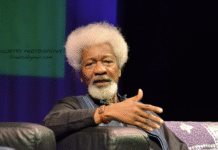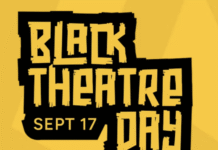 “I ask you and all the leaders of the world, would you act differently, would you keep silent and do nothing if you were in our place? Would you not resist if you were allowed no rights in your own country because the color of your skin is different from that of the rulers, and if you were punished for even asking for equality? I appeal to you, and to all the countries of the world, to do everything you can to stop the coming tragedy. I appeal to you to save the lives of our leaders, to empty the prisons of all those who should never have been there.” – Miriam Makeba in a speech to the UN, 1963
“I ask you and all the leaders of the world, would you act differently, would you keep silent and do nothing if you were in our place? Would you not resist if you were allowed no rights in your own country because the color of your skin is different from that of the rulers, and if you were punished for even asking for equality? I appeal to you, and to all the countries of the world, to do everything you can to stop the coming tragedy. I appeal to you to save the lives of our leaders, to empty the prisons of all those who should never have been there.” – Miriam Makeba in a speech to the UN, 1963
Miriam Makeba
On this date in 1932, Miriam Makeba was born. She was a South African singer, entertainer, and activist.
From Prospect, South Africa, throughout her life and singing career, Miriam Zenzi Makeba has used her voice to draw the attention of the world to the music of South Africa and to its oppressive system of racial separation, apartheid.
With her appearance in the semi-documentary antiapartheid film Come Back, Africa (1959), Makeba drew the attention of international audiences. That same year, Makeba traveled to London where she met African-American performer and civil rights activist Harry Belafonte.
Belafonte became her sponsor and promoter in the United States. Through him, she appeared on the Steve Allen Show, which led to nightclubs around New York City and recordings of South African music. Some songs became hits in the United States, including “Patha Patha,” “Malaika,” and “The Click Song.” Her music also contained a political component, the denunciation of apartheid, which earned Makeba the hostility of the South African government, who revoked her passport when she attempted to return for her mother’s funeral in 1960. Makeba pressed on and, in 1963, she addressed a United Nations special committee on apartheid, characterizing South Africa as “a nightmare of police brutality and government terrorism.”
Her marriage to African-American civil rights activist Stokely Carmichael (now Kwame Ture) derailed her career in the United States.
In 1982 Mother Africa, as she was known, reunited with South African trumpeter Hugh Masekela, to whom Makeba was married from 1964 to 1966. Continuing her activism, in 1975, she served a term as a United Nations delegate from Guinea. In addition, she was awarded the Dag Hammarskjöld Peace Prize in 1986. In 1987, Makeba performed on Paul Simon’s Graceland tour. She finally returned to South Africa in 1990.
In 1991, she released “Eyes on Tomorrow” and, that same year, Makeba gave her first live performance in South Africa since her departure more than 30 years earlier.
The Akosua Report: Facts on The African Diaspora, is written by Akosua Lowery. Follow her on Twitter @AkosuaLowery.
Like The Burton Wire on Facebook. Follow us on Twitter @TheBurtonWire.









[…] that make me more aware of the negated bodies of knowledge than these two months. Even as certain “heroines and heroes” are lifted up to a place of awareness, African American bodies of knowledge—that is ways of knowings/knowledge […]
Comments are closed.